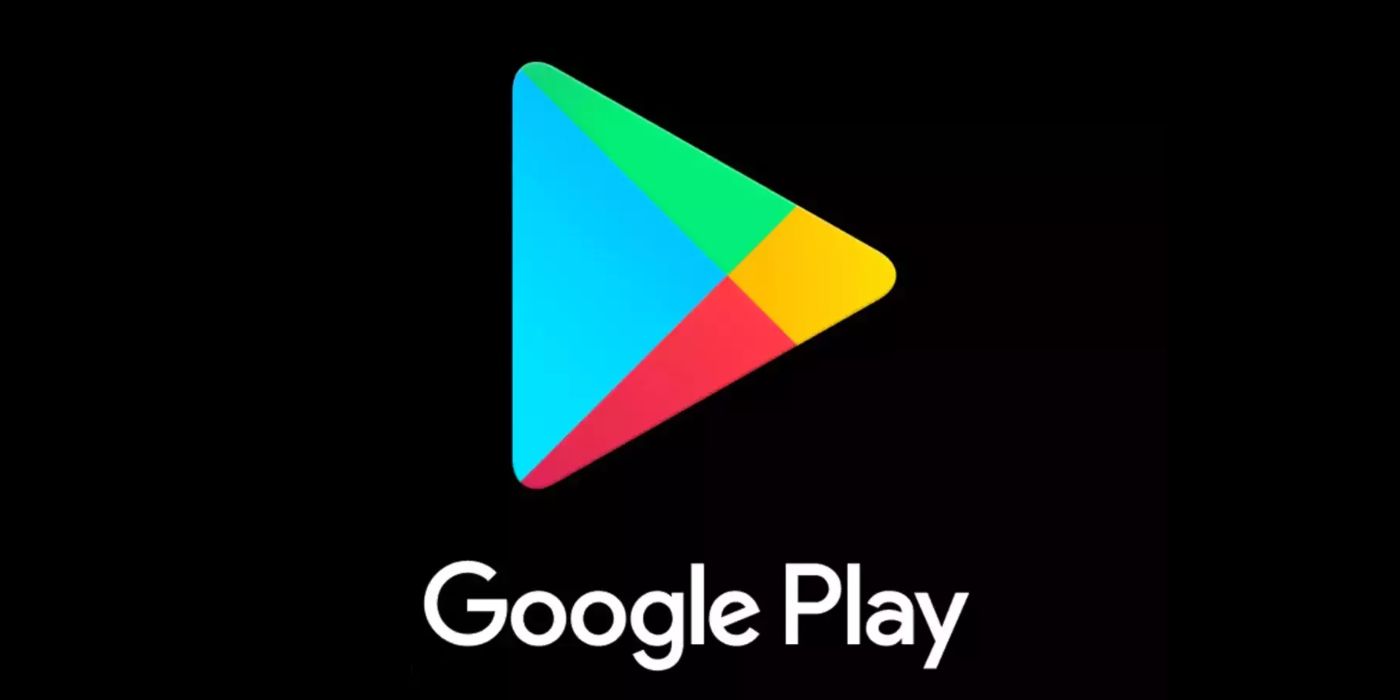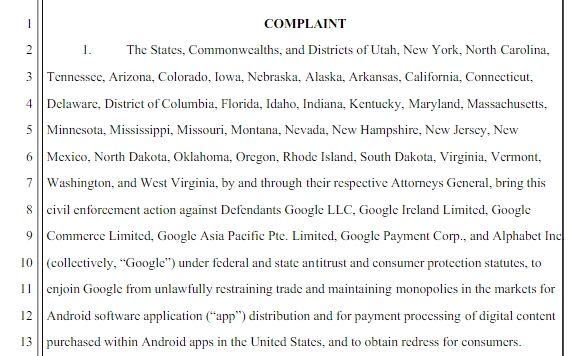While attention has been focused on Epic's antitrust lawsuit against Apple, it seems the Google Play service has become a better target for other parties. This past week, attorneys from 36 states and Washington, D.C. filed an antitrust lawsuit against Google. Like with Epic vs. Apple, the lawsuit focuses on Google's fees of up to 30%, accusing Google of being a monopoly and using that market power to force businesses and consumers to pay unreasonable costs.
The lawsuit comes from states including California, New York, Arizona, North Carolina, Florida, Kentucky, Minnesota, and over a dozen others, with the case being filed in the Northern District of California as Google likely requires. The official complaint reads that these parties are filing to enjoin Google from "unlawfully restraining trade," "maintaining monopolies" tied to Android apps, and for "payment processing" of Android apps. Further, the lawsuit seeks to obtain redress for consumers, as well.
More specifically, the lawsuit accuses Google of closing the Android ecosystem from competition in order to insert itself as an inescapable middleman between developers and users. In this position, Google takes up to 30% of every transaction made through Android. Google then uses anticompetitive strategies to ensure its own app distribution software is used and that others cannot exceed, as well as preventing apps from finding success through other Android distribution software, as well.
Arguing that Google has established itself as a monopoly, the lawsuit alleges that smart mobile devices are essential tools in American life. From there, Android has made itself the "only viable operating system" available to smart mobile device manufacturers. Google then forces its Play distribution software to be installed on all devices where Android is installed. The lawsuit notes that corporations including Microsoft and Amazon have failed to enter this market, which Google now controls "approximately 99% of."
To refute Google's likely claim that Android devices allow for multiple software distribution apps and is therefore "open," the lawsuit alleges the Google Play Store distributes "over 90% of all Android apps." Further, that no other Android app store has more than 5% of the market.
In response to the lawsuit, Google claims that it imposes less restrictions than other mobile platforms do. This is perhaps a reference to how Apple blocks other software distribution apps on its devices, which it's currently being sued by Epic Games over. Epic has since issued a statement supporting this new lawsuit against Google as part of its Coalition for App Fairness, saying "App stores have been given a free pass to abuse their dominant market position for far too long."
A court date for the Google Play case may take some time to be announced. Expect to hear more about it in the months to come.
Source: Politico


